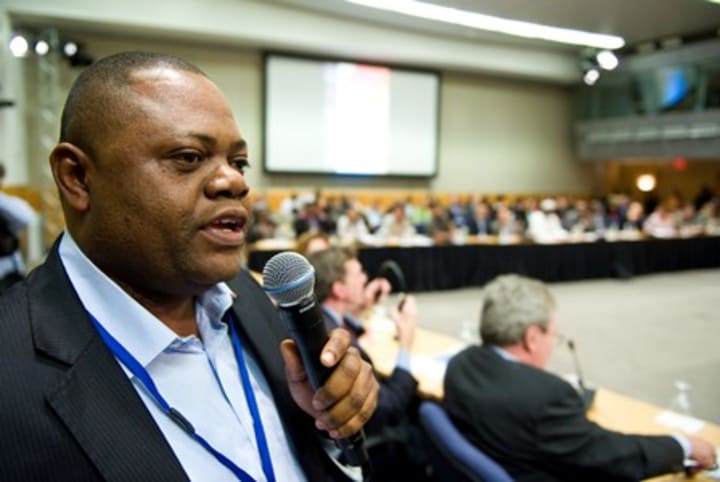
Much has changed for development stakeholders since the signing of the Accra Agenda for Action in 2008. Economic and financial crises continue to push industrialized countries to the brink of collapse impacting traditional forms of development finance and driving aid towards more “value for money.” At the same time, other forms of development assistance such as South-South cooperation shine with new prominence of large developing country providers such as Saudi Arabia and the BRICS (Brazil, Russia, India, China and South Africa).
The Accra Action Agenda acknowledged civil society organizations for the first time as “development actors in their own right” (paragraph 20), prompting civil society to step up its role as critical agent for effective development policy and practice. The BetterAid Platform has been at the heart of this involvement. Organized as a global CSO open platform that allows the participation of any CSO, BetterAid involves hundreds of CSOs engaging in development cooperation worldwide. As a full member of the Working Party on Aid Effectiveness, BetterAid-participating CSOs have lived up to the challenge of providing concrete and hands-on policy intervention, giving a voice especially for the world’s poorest and most marginalized people.
Building a sustainable future?
Moving forward at Busan requires a bold and ambitious approach to the effectiveness for results agenda of development. It means realizing innovation and change that lead away from the technocratic aid effectiveness agenda and towards achieving genuine development outcomes through holistic development effectiveness strategies. Such an advance requires that Paris and Accra commitments be fundamentally deepened based on democratic ownership – where peoples’ voices form the core not just in demanding but also the agenda setting and the implementation of aid reform.
This is about making development work through and for the people. Such an approach needs to be broad and inclusive of all actors and aspects of development cooperation. Goals and principles of development should be applied coherently in global and local policy. The need to reform aid relationships is essential, forming new alliances and partnerships that are based on common principles of inclusiveness, solidarity, sovereignty and rights.
At the Fourth High Level Forum on Aid Effectiveness in Busan, South Korea, this means advancing on four interrelated areas. First, the Paris and Accra commitments need to be strengthened. The absence of strong performance on Paris and Accra requires a renewal of commitment to heighten and strengthen efforts to achieve sooner rather than later the unfulfilled Paris and Accra commitments including the use of country systems as the first option, ending policy conditionality, untying all forms of aid, implementing demand-driven technical assistance, addressing the unpredictability of aid, and achieving transparency and accountability through clear and inclusive accountability frameworks and the highest standards of openness and transparency by all aid actors.
Second, effectiveness must be deepened through democratic ownership and human rights not only as a goal but more importantly as operational methods to achieve development results or development effectiveness. A rights-based approach to development empowers the poor and marginalized, enabling them to claim their rights to development. Such an approach is vital in the fight against the root causes of poverty and in the promotion of democratic development. Special attention needs to be paid to the promotion and implementation of gender equality and women’s rights. Women make up over half of the world’s population, yet they find themselves amongst the poorest and most marginalized in society.
Third, CSOs need to be supported as independent development actors in their own right and an enabling environment for their work in all countries needs to be guaranteed. Despite the promises at Accra, civil society still finds itself marginalized and excluded from most development processes. Busan needs to agree on minimum standards that create an enabling environment for CSOs, while unfolding CSO efforts in achieving CSOdevelopment effectiveness.
Fourth, the HLF4 needs to build bridges for effective, open and equitable partnerships of the future. The current international framework for development cooperation is dominated, controlled and driven by rich countries, by the provider and not the subject of development. If development is about the poor, then the architecture of development cooperation must be driven by developing countries as the subjects of development through partnerships and structures that are open, equitable and just.




